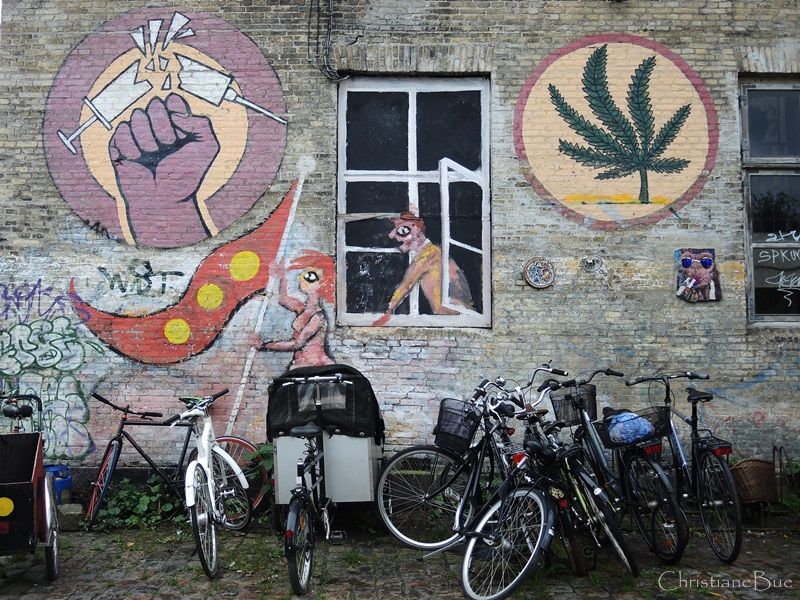The Coronavirus Crisis has resulted in a big increase in the price of many popular recreational drugs, including cannabis, cocaine and heroin.
While the borders remain closed, the smuggling of illegal substances has slowed down. So far prices have gone up 20 percent, and they are expected to rise even more.
Pros and cons
The authorities have voiced concern that this is leading to increased desperation among drug addicts, whose behaviour can be unpredictable at the best of times.
But there is hope the price rise may lead to fewer habitual users, and therefore fewer people becoming addicted to drugs – particularly youngsters.
All prison employees to be tested
According to the Danish Prison Federation, all employees at prisons and probation services have been offered coronavirus test invitations as per an extended strategy of the government’s fight against the virus. The tests will take place outside their working hours. The officers’ employer, Prison and Probation Service, has clarified it will not have access to information about whether employees accept the offer or not. The body expects that tests for antibodies will be offered at a later date as well.
First confirmed cases in asylum centre
Two residents at an asylum centre have been infected with the coronavirus, according to the Immigration Services – the first on record. The authority says the centre has taken care of the situation and followed the applicable health authority guidelines. There are approximately 2,500 asylum-seekers at 14 asylum centres in Denmark. All of them have closed common areas and visits have been banned since the outbreak. Two quarantine centres for infected residents have been established in Gribskov in Zealand and Brovst in Jutland, TV2 reports.
Police to start fining in connection with gatherings of over ten
Neither the health risk of spreading a potentially deadly virus nor police warnings could stop hundreds of Danes from flocking to enjoy the sunshine along Islands Brygge and other grassy areas around Copenhagen on Thursday as temperatures hit 20 degrees. Some 300-400 people were reported to have gathered in relatively close proximity to one another in one area of Islands Brygge in defiance of the coronavirus restrictions on gatherings of 10 or more people. Jesper Bangsgaard, a deputy police inspector, told media that “we will be quicker with injunctions, so that there will be a quicker way to fine, although our approach will still be dialogue-based.” Failure to comply with the restriction on gatherings can result in a fine of 1,500 kroner.
Denmark won’t get behind joint EU loan
The fourth EU summit on the coronavirus was held on Thursday and one major item of debate among EU leaders is the need for a special recovery fund. The countries’ finance ministers agreed before Easter to establish such a fund, but issues concerning how large the fund should be, how it will be paid for, and how it will be doled out remain unresolved. PM Mette Frederiksen voiced concern to the media about becoming jointly liable for other country’s debts, but all Europeans leaders expressed optimism that a deal will get done.
Another hospital closes its coronavirus ward
Randers Hospital is closing its coronavirus section as a result of falling admissions. The hospital undertook a major reorganisation in March, putting together an additional intensive care unit for critically-ill coronavirus patients as well as a ward for patients who were not as ill but needed to remain isolated. Hospital officials say they have made sure that the section can reopen swiftly should the number of infections rise again – particularly as some businesses and communities begin to reopen. At its peak a week and a half ago, there were nine patients admitted at Randers Hospital whose conditions could be described as severe.
Fewest road traffic accidents in 35 years
One positive effect of the Coronavirus Crisis has been its impact on the number of road traffic accidents. With diminished traffic on Danish roadways, the number of recorded vehicle accidents in March was at its lowest since 1985. Collision fatalities were also low at nine people, though not as historically low as the eight killed in March 2014 and April 2017, while just seven were recorded killed in February 2018. The Danish Road Directorate predicts this positive trend will continue as the country remains partially shut down under coronavirus restrictions. However, it acknowledges there is some uncertainty surrounding the figures as the police may have been more focused on other tasks more than entering accident reports.














